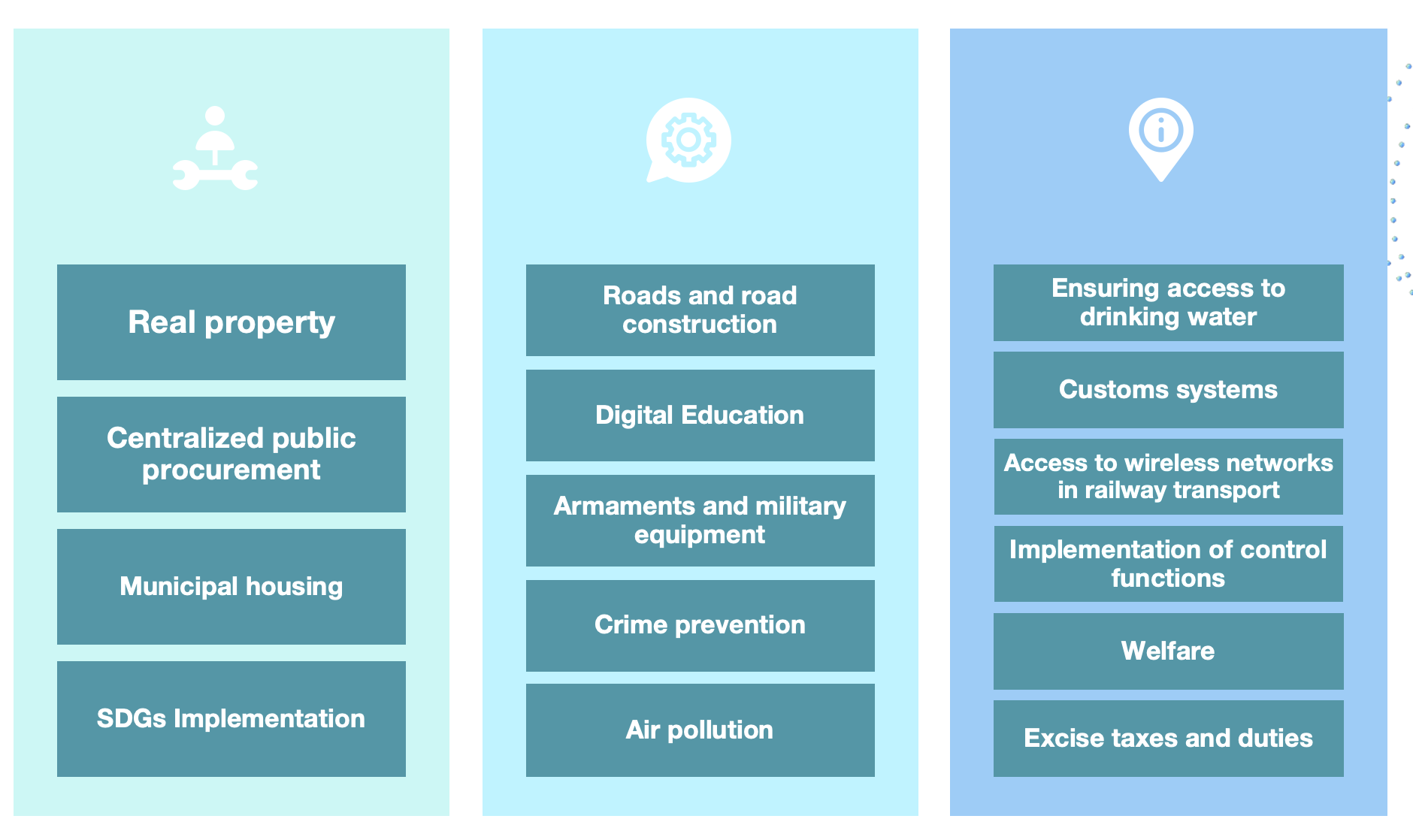Staff Competencies and Capacity Building

Public institutions digitalization is comprehensive process and includes not only the adoption of new technologies, but also building the staff professional capacities.
According to WEF experts, a successful digital transformation requires, among other things, strong project management skills.
Compact and horizontal organizational structures empower the staff to provide greater flexibility and speed in decision-making.
A common practice is to create a separate unit within the public institution responsible for the introduction of innovative approaches, as well as a competence center for training and support in the local use of new technologies.
In addition to creating the project teams and the scaling of digital solutions, it is vital to increase the digital competencies of all employees of government bodies, as well as to train them the "soft skills" necessary to adapt to environment changes. The traditionally conservative nature of the public service can be a major challenge to the adoption of breakthrough technologies in this sector. Compared to the difficulties of mastering new technologies, it is much more difficult for public institutions leadership and staff to change their mindset, which results in the issue of training and advanced training still being acute and necessary for improving the performance of the government. The most common issues faced by public authorities in developing the staff digital skills include:
- Lack of a clear understanding of the tasks, goals, and risks in the organization of staff training (it is vital to avoid inflated expectations, both in terms of implementation speed and of new skills application);
- Difficulty in involving private providers of learning services (the need to create flexible conditions under contracts; a thorough study of the learning services market);
- Recognition of the need to work with legacy systems and a continuous process of updating skills;
- Selection of the right combination of the necessary skills for specific public administration tasks;
- Correct choice of the information presentation method;
- Providing funding and material incentives to employees learning new skills.
At the same time, an important problem is the lack of understanding of what set of competencies the employees should have for a successful digital transformation in each specific government body.
The TOP Popular LMS by Total Customers
Edmodo
350 k
Thinkific
25 k
Moodle
99.4 k
Blackboard
16 k
Collaborize Classroom
60 k
The TOP Popular LMS by Total Users
Moodle
124 m
Cornestone OnDemand
37 m
Edmodo
58 m
Saba Software
33 m
SAP SuccessFactors
48.8 m
Source: Capterra Survey 2018, The Top 20 Most Popular LMS Solutions
Staff Competencies and Capacity Building – Case Studies
National Audit Office of China

SAI: National Audit Office of China
Title: National audit under the big data environment
Date: March 20, 2018
Link: Procceed
Based on the results of the study, the National Audit Office of China draws attention to the fact that there is auditors' resistance to changes. The SAI is currently promoting a comprehensive digital audit approach that includes general analysis, risk and suspicious activity identification, local inspections, and systemic research. Audit using big data analysis confirms its effectiveness in practice, and also helps to change the attitude of participants in control activities with regard to digital tools.
Czech Republic Supreme Audit Office

SAI: Czech Republic Supreme Audit Office
Title: Benchmarking Information Exchange Project, BIEP
Date: 11/2017
Link: Procceed
The Czech Republic Supreme Audit Office launched the Benchmarking Information Exchange Project (BIEP) On the platform, it is possible to discuss topical professional issues and conduct a comparative analysis of methodological approaches and audit results in various areas.
The main idea of BIEP is to compare key performance indicators (KPIs) and specific national conditions in different countries. Comparison areas are unlimited. The BIEP aims to save time and audit costs.
BIEP Rubricator

Auditor General Office of Denmark

SAI: Auditor General Office of Denmark
Title: In-House Center of Excellence for Data Analytics
Date: January 15, 2020
Link: Procceed
The In-House Center of Excellence for Data Analytics has been established in the SAI of Denmark. The staff of the center assists auditors in conducting control activities using new data analysis tools. It is important to note that Denmark twice ranked first in the UN E-Government Surveys.
European Court of Audits

В рамках Европейской счетной палаты (European Court of Auditors, ECA) был создан Руководящий комитет по цифровым технологиям (Digital Steering Committee), в рамках которого функционирует ECALab – пространство для обмена идеями, изучения, тестирования и внедрения технологий в процесс аудита. Основными направлениями работы платформы являются использование инструментов анализа данных, визуализации и контроля процесса проведения проверок.
UK National Audit Office

One of the main issues in digital transformation of public administration is still how to monitor the knowledge gained and measure the level of digital literacy and competencies of public authorities employees (including SAIs). The UK's National Audit Office has introduced a Skills passport. The auditors fill out a form there on a regular basis indicating how familiar a member is with a particular technology or analytical method of conducting an audit.
Office of the Auditor General of Nepal

SAI: Office of the Auditor General of Nepal
Title: Nepal Audit Management System
Date: January 26, 2022
Link: Procceed
The SAI of Nepal has launched the Nepal Audit Management System. The project is aimed at optimizing the process of audit of possible risks. The audit phases supported by the program include:
- Risk-based audit planning;
- Online access to the auditee;
- Online audit quality control and assurance mechanism;
- Online transfer of audit reports generated by the system;
Archiving of received documents
Accounts Chamber of the Russian Federation

SAI: Accounts Chamber of the Russian Federation
Title: Digital University for INTOSAI Community, U-INTOSAI
Date: April 12, 2021
Link: Procceed
In 2021, the Accounts Chamber of the Russian Federation launched the Digital University for the INTOSAI Community (U-INTOSAI) based on the LMS plugin for WordPress.
Educational materials published on the U-INTOSAI platform reflect the experience of international organizations, academic and business communities, as well as of the SAIs, which contributes to ensuring the capacity and competence of the auditors of the future.
The platform is currently available in seven languages and has more than 1,500 registered users from 196 countries. The platform presents e-courses and podcasts on a wide range of topics relevant for the SAIs: SDGs, public administration, information technology and data analytics, management, soft skills, etc.
While implementing the U-INTOSAI initiative, the team faced a number of difficulties in various areas:
- Mistrust of potential stakeholders in the new platform and the effectiveness of distance learning in general;
- Difficulties in finding educational content suitable to develop skills required by the Community;
The narrow focus of the platform; as a result, it is impossible to conduct classical marketing campaigns to promote the service.


